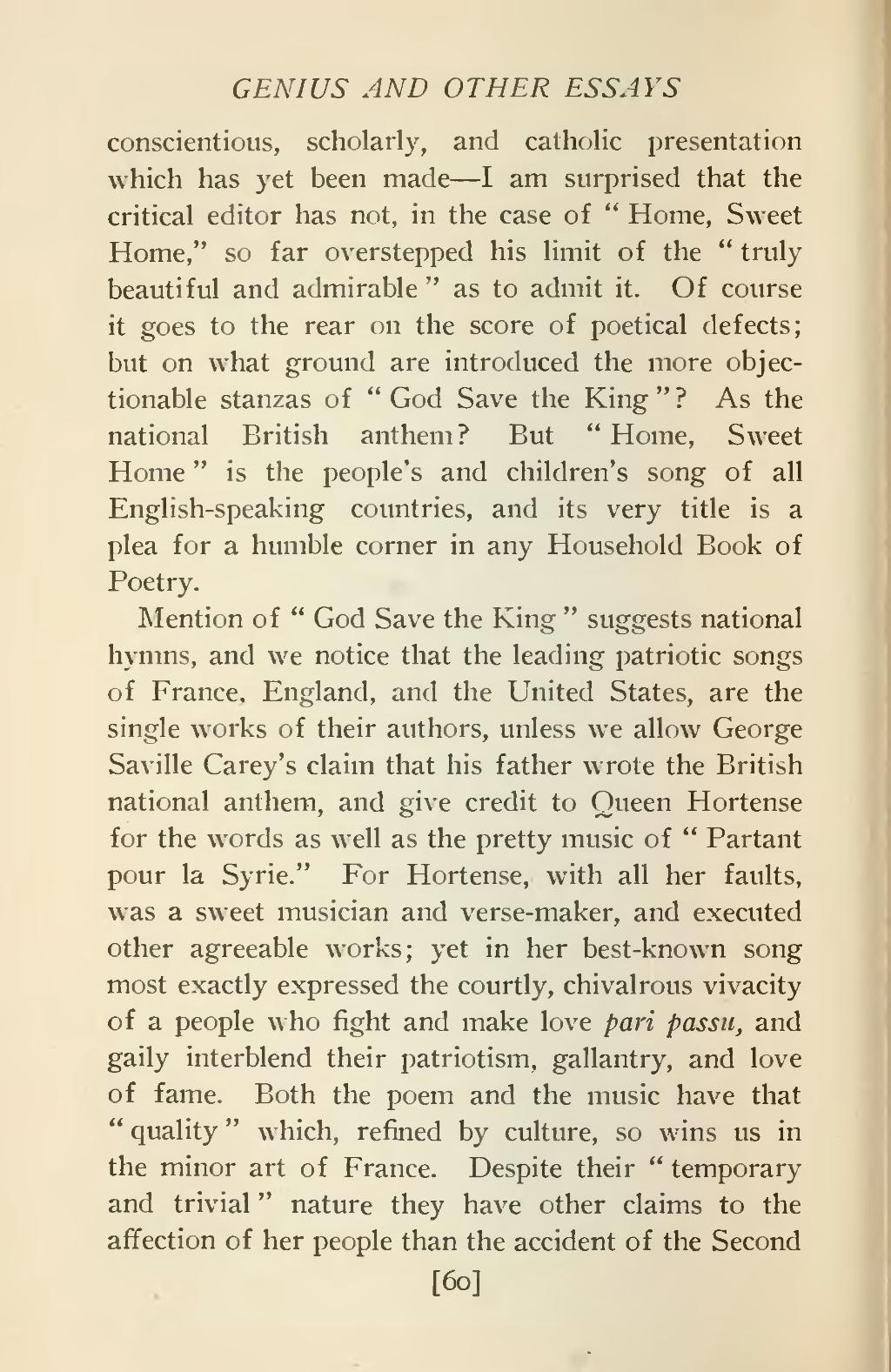GENIUS AND OTHER ESSAYS
conscientious, scholarly, and catholic presentation which has yet been made—I am surprised that the critical editor has not, in the case of "Home, Sweet Home," so far overstepped his limit of the "truly beautiful and admirable" as to admit it. Of course it goes to the rear on the score of poetical defects; but on what ground are introduced the more objectionable stanzas of "God Save the King"? As the national British anthem? But "Home, Sweet Home" is the people's and children's song of all English-speaking countries, and its very title is a plea for a humble corner in any Household Book of Poetry.
Mention of "God Save the King" suggests national hymns, and we notice that the leading patriotic songs of France, England, and the United States, are the single works of their authors, unless we allow George Saville Carey's claim that his father wrote the British national anthem, and give credit to Queen Hortense for the words as well as the pretty music of "Partant pour la Syrie." For Hortense, with all her faults, was a sweet musician and verse-maker, and executed other agreeable works; yet in her best-known song most exactly expressed the courtly, chivalrous vivacity of a people who fight and make love pari passu, and gaily interblend their patriotism, gallantry, and love of fame. Both the poem and the music have that "quality" which, refined by culture, so wins us in the minor art of France. Despite their "temporary and trivial" nature they have other claims to the affection of her people than the accident of the Second
[60]
